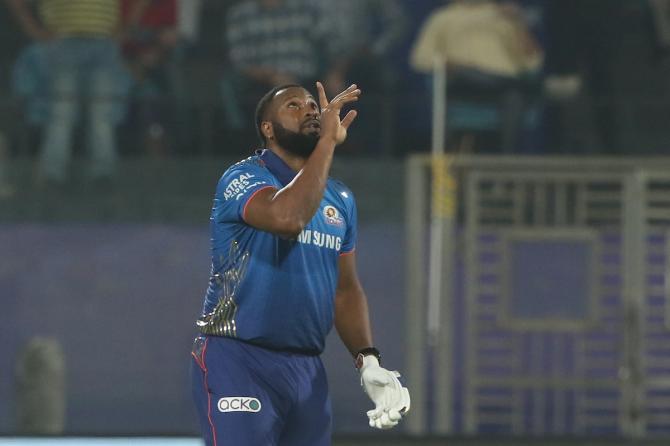 | « Back to article | Print this article |
'It is no accident that politicians strive to control sports bodies, and get their names associated with popular sports, sometimes by renaming stadiums after themselves,' observes Devangshu Datta.

Berlin 1936, Moscow 1980, Beijing 2008: Three Olympics. Each hosted by a horrible regime. This is just a small random sample.
Undemocratic regimes love hosting sporting events. In 1978, for example, Argentina hosted the football World Cup.
Argentina was then run by a bunch of genocidal generals.
Their favoured way of handling dissidence was to chuck protesters out of planes into the Atlantic. They also used stadiums as jails.
The Mexico Olympics of 1968 was preceded by the massacre of hundreds, and was punctuated by protests against Mexico's one-party regime.
Nations spend large sums lobbying to host Olympics and World Cups.
The winning bidder spends even more to create infrastructure, and manage logistics.
Autocratic regimes see this as a great bang for the buck, even when they really can't afford it.
Germany was barely emerging from the Great Depression in 1936.
The USSR was struggling in 1980.
Argentina in 1978 was suffering runaway inflation. (China is an outlier in that it was economically robust.)
Why do poor, undemocratic, regimes splash out on sports? One reason is populist appeal.
The Romans understood the utility of sporting circuses in keeping citizens distracted and therefore, less discontented.
They revived the Olympics; they instituted chariot races, which attracted a fan base as fanatical as modern soccer.
Sporting success generates PR conducive to spin doctoring.
Nazi Germany, the Soviet Union, China, East Germany, Cuba, North Korea, Argentina, Brazil; each of these nations, and others, has showcased sporting excellence as a proxy that 'proves' the regime's superiority.
Sports helps with obfuscation. The Berlin extravaganza helped hide the fact that thousands had already died in Nazi concentration camps.
The cheers of football fans celebrating Argentina's victory drowned out the gunshots as firing squads killed dissidents.
Self-immolations in Tibet and the 're-education' of Uyghurs disappeared from the news as sports commentators waxed lyrical about the 'Birds Nest'.

Sports is politics. It has always been. It is naive or disingenuous to pretend otherwise.
Indeed, one can paraphrase Clausewitz and say sports is the continuation of politics by alternate means.
Politicians recognise this which is why they dabble in sports.
It is no accident that politicians strive to control sports bodies, and get their names associated with popular sports, sometimes by renaming stadiums after themselves.
A sporting event that generates negative press really damages the image too.
It hurt the USSR when many nations boycotted the 1980 Olympics to protest the invasion of Afghanistan.
It hurt the Apartheid regime when cricket boards refused to play against the South Africans.
It hurt the Apartheid regime when India refused to play a Davis Cup Final. Conversely, it boosted the image of the 'Rainbow Nation' when it hosted the cricket, football and rugby World Cups.
Activists also understand the political leverage sports provides.
Muhammad Ali was one of thousands of Americans who refused to be conscripted to fight in Vietnam.
His status as a boxing champion highlighted the issues.
Two sprinters who gave the Black Power salute on the podium at Mexico highlighted the cause of Civil Rights in the US.
Donald Trump had hysterics (well, even more than usual) when black American football players knelt in support of the Black Lives Matter movement.
He understood how this would highlight the issue of racist police forces targeting people of colour.
It is in this context that one must see IPL, and the 2023 cricket World Cup.
Are these hosted by a nation that is so resource-strapped that it cannot provide basic healthcare?
Is there plenty of domestic strife within the host nation?
Are politicians (or their sons) in charge?
Was there intense lobbying to host the World Cup?
Is the regime undemocratic?
There have been a vast number of avoidable deaths related to COVUD-19 due to 'The System's' incompetence at handling the pandemic.
Stupid policymaking by 'The System' has driven an even larger number of citizens into penury.
IPL helped draw attention away from this huge failure of governance.
So would the World Cup, if it takes place at all. It would be an even bigger blow to 'The System's' image if the World Cup has to be shifted away.
Feature Presentation: Rajesh Alva/Rediff.com